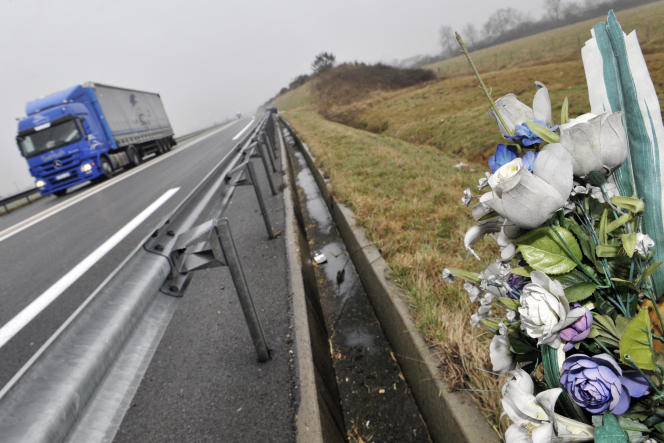In service over a 30 kilometer section between Montmarault and Chemilly, in the Allier department, the A79 is the first motorway in France with a “free flow” toll. Eventually, in October, it will link Montmarault to Digoin (Saône-et-Loire) for 88 kilometers and will replace the dangerous N 79 / Center-Europe-Atlantic road (RCEA), by connecting the A71 to the A6.
After implementations in Austria, Spain, Portugal and the United States, this new type of toll in France resembles eco-tax portals for heavy goods vehicles. No need to stop or take a ticket: passing under the detectors equipped with infrared cameras makes it possible to identify vehicles whatever the weather conditions.
Four options are available for payment: the normal electronic toll badge, a “plate” subscription created by an account on the Internet and charged monthly. Without subscription, two options: payment is made on the Internet before, during and after the trip or on 16 electronic payment terminals installed on areas, interchanges and ramps of the A79.
Less CO2 emissions
“This process, part of the approach of the 2019 mobility orientation law, makes life easier and protects the environment”, explains Isabelle Lacharme, operating director of Autoroute de liaison Atlantique Europe (Aliae), a subsidiary of the Eiffage group and contracting authority and concessionaire for a period of forty-eight years.
“By eliminating the stopping and restarting of thermal vehicles at barriers, we are helping to significantly reduce CO2 emissions. A truck loaded with 40 tonnes consumes 2 liters of additional fuel when passing through a barrier”, continues Ms. Lacharme, who highlights more fluid traffic, a reduction in the risk of traffic jams and a drop in artificialization. soils. “By avoiding the creation of a toll barrier, we save the consumption of 16 hectares of land. On the tariff side, modulation with decreasing prices according to CO2 emissions for light vehicles, but also for heavy goods vehicles, has been put in place. The move results in “lower-than-usual rates.”
With 15,000 vehicles per day, 40% of which are heavy goods vehicles, the RCEA’s thirty-year-old security file is thus nearing its end, after 130 deaths recorded since 2008 between Moulins and Mâcon, including, in 2016, twelve people of Portuguese nationality in a minibus.

















